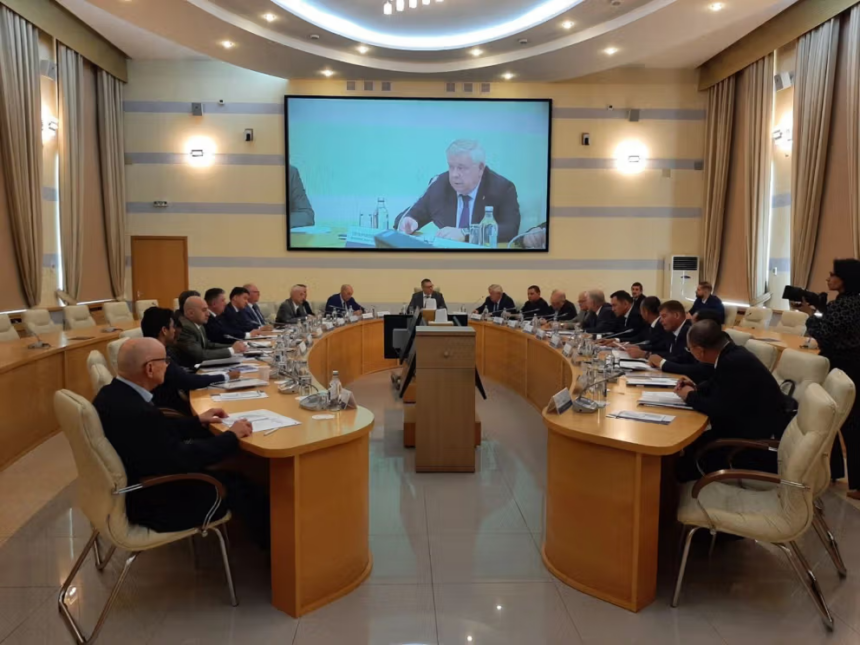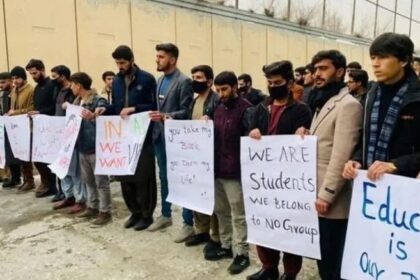RASC News Agency: As concerns deepen over the security of Central Asia’s southern frontiers, particularly along the volatile Afghanistan-Tajikistan border, the Collective Security Treaty Organization (CSTO) has reiterated the urgent need to fortify Tajikistan’s southern boundaries. The move reflects growing geopolitical anxiety among CSTO member states over the resurgence of terrorist groups and transnational criminal networks in Taliban-controlled Afghanistan. Valery Semerikov, Deputy Secretary-General of the CSTO, speaking during a high-level conference on international counterterrorism efforts in Moscow, underscored the organization’s long-term strategic commitment to bolster regional defenses. He announced that a comprehensive program aimed at reinforcing the Tajikistan Afghanistan border remains central to CSTO’s broader security agenda and urged deeper collaboration among member states in the face of mounting threats.
According to Semerikov, the CSTO has in recent years launched coordinated operations targeting transnational threats, including terrorism, narcotics trafficking, illegal migration, and cross-border crime. He noted that the bloc’s efforts are increasingly intertwined with other major security institutions such as the United Nations, the Shanghai Cooperation Organization, and the Commonwealth of Independent States (CIS), which serve as key partners in managing the fallout from Afghanistan’s growing instability. Earlier this year, CSTO officials warned that the deteriorating situation in Afghanistan especially across its northern provinces bordering Central Asia continues to serve as the principal source of external threats to the region. Natalia Kharitonova, the organization’s spokesperson, told Russia’s Izvestia newspaper that Afghanistan, under Taliban rule, remains a hotbed for terrorism, violent extremism, and narcotics smuggling, effectively turning into a breeding ground for regional insecurity.
Kharitonova’s remarks echo the growing consensus among international analysts: that the Taliban’s inability or unwillingness to dismantle entrenched terror networks and narcotics empires has allowed Afghanistan to regress into a launchpad for extremist ambitions and criminal syndicates. Despite repeated promises of reform and stability, the Taliban regime has neither neutralized militant factions like ISIS-K and al-Qaeda, nor curtailed the multi-billion dollar opium economy that continues to flow through northern corridors into Central Asia and beyond. In response to these threats, CSTO’s new border security initiative scheduled to begin in 2025 will unfold in three phases over a five-year period. The program, officials say, is designed not just to erect physical barriers, but to establish a multilayered defense architecture capable of detecting and neutralizing asymmetric threats originating from Afghanistan’s lawless frontier.
But for many security experts, the challenge is not just structural, but political. The Taliban’s governance model rooted in ideological authoritarianism and sustained through repression and exclusion has done little to establish meaningful control over remote regions where insurgent groups and trafficking networks thrive. The regime’s frequent denials of terrorism’s presence within Afghanistan are increasingly seen as deliberate obfuscation, designed to deflect international scrutiny while quietly tolerating, or even enabling, the very actors that threaten regional stability. Repeated CSTO warnings about the growing presence of non-state armed groups including ISIS-Khorasan, the Haqqani Network, and remnants of al-Qaeda are a stark indictment of the Taliban’s failure to transition from a militant insurgency into a responsible governing entity. With the international community largely disengaged and the Taliban’s promises proving hollow, neighboring states now find themselves forced to act unilaterally or through regional alliances like CSTO to secure their borders.
In this context, Tajikistan’s southern frontier is no longer just a national boundary it has become a critical fault line in the global fight against terrorism and transnational crime. The CSTO’s renewed emphasis on securing this frontier is a strategic necessity, not a choice, as Afghanistan under Taliban rule remains the most significant unresolved threat to the long-term peace and security of Central Asia.






